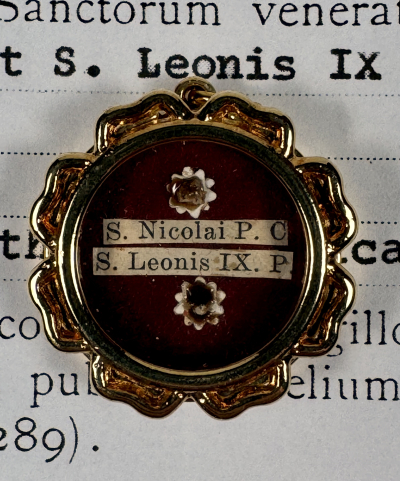Saint Pope Nicholas I (†867), called Nicholas the Great, was the bishop of Rome and ruler of the Papal States from 858 until his death. He is remembered as a consolidator of papal authority, exerting decisive influence on the historical development of the papacy and its position among the Christian nations of Western Europe. Nicholas I asserted that the pope should have suzerainty over all Christians, even royalty, in matters of faith and morals. During his reign, relations with the Byzantine Empire soured because of his support for Patriarch Ignatios of Constantinople, who had been removed from his post in favor of Photius I. Since the seventeenth century, Nicholas has been venerated as a saint in the Catholic Church, with his feast on 13 November.
Saint Pope Leo IX (†1054) was the head of the Catholic Church and ruler of the Papal States from 1049 to his death. He is considered to be one of the most historically significant popes of the Middle Ages; he was instrumental in the precipitation of the Great Schism of 1054, which was considered the turning point in which the Catholic and Eastern Orthodox Churches formally separated. Leo IX favored traditional morality in his reformation of the Catholic Church. He is regarded as a saint by the Catholic Church; his feast day is celebrated on 19 April.






 Change language to English
Change language to English